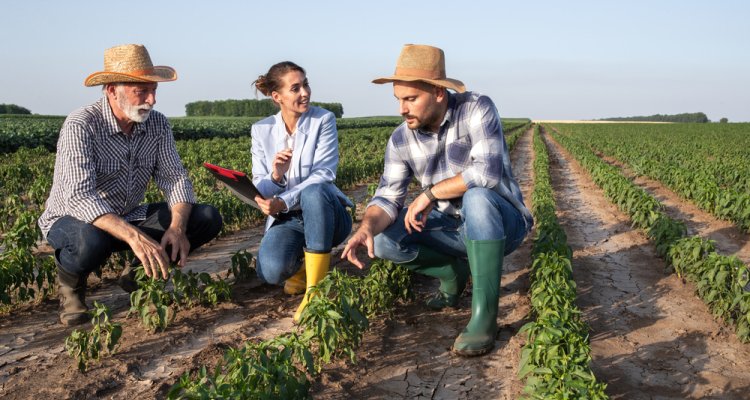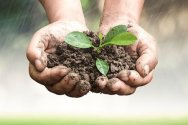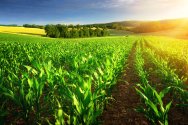
Online
Programme: Crop Production and Soil Management
How to feed the world without depleting our planet’s reserves? Learn why soil is so important, how it's being threatened and what we can do to protect it. Then learn the basics of crop production. Combined, these new insights will increase your understanding of what’s needed to feed our growing global population.
What you'll learn:
- Learn about the main issues in global food production and consumption, including regional differences.
- Study the impact of water, nutrients, pests, diseases and weeds on food crop production.
- Evaluate environmental problems caused by food crop production and evaluate solutions.
- Assess yield gaps in different regions and judge innovations in food crop production.
- Understand the importance of soils and sustainable soil management, including threats, functions, degradation, and socio-economic and policy aspects.
- Investigate solutions for soil erosion, pollution, compaction, and salinization, and contribute to discussions on soil protection.
Why follow this programme?
Feeding nine billion people in 2050 without overwhelming the planetary reserves is a crucial challenge for humankind. To address this challenge, this online programme combines the principles of production ecology and the ‘availability pillar’ of global food security with an introduction to environmental studies, specifically the importance of soil. This unique programme will examine both crop and animal production, as well as the societal and environmental challenges facing our food systems and soil.
The fundamentals
The professors will lead participants through the basics of crop production and the underlying bio-physical principles that shape the wide diversity of production systems, while also identifying constraining factors in yield formation and explaining how to assess yield gaps. The programme will also explore key issues related to closing yield gaps and link these to different visions of sustainability.
Environmental focus
On the environmental studies side, the programme will delve into the threats facing our soil, such as deforestation, erosion, overgrazing, use of agrochemicals, compaction, pollution, and climate change, and equip students with the knowledge and skills to make a difference in protecting this vital natural resource. Wageningen University and Research, through its unique systems-based approach to food systems, adds the phase of primary production to the broad context of global food security.
In summary
This programme will be of great interest to participants from all around the world and those with varied educational backgrounds, both professionally and culturally, as it will enrich their views and action perspectives related to the crucial challenges of global food security and sustainable soil management.
Job Outlook:
- In general, any job or sector that involves food production, environmental sustainability, or resource management could benefit from the program.
- Agriculture and agribusiness: Farmers, agronomists, agribusiness professionals, etc.
- Environmental science and sustainability: Environmental scientists, sustainability consultants, etc.
- Development and aid: Development professionals, aid workers, etc.
- Research and education: Researchers, educators, etc.
- Government and policy: Policymakers, government agencies, etc.
Content of the programme
Soil for Life Soil is the earth’s fragile skin that anchors all life. We depend on soil to build our homes and cities, to grow crops for food and raise livestock, to support transportation and enable recreation. Yet we disregard this crucial and precious resource that lies right under our feet. Learn why soil is so important, how it's being threatened and what we can do to protect this natural resource so vital to our lives.
How to feed the world without depleting our planet’s reserves? Learn the basics of crop production.


